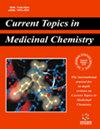Therapeutic Potential of Quercetin in Diabetic Neuropathy and Retinopathy: Exploring Molecular Mechanisms
IF 2.9
4区 医学
Q3 CHEMISTRY, MEDICINAL
Current topics in medicinal chemistry
Pub Date : 2024-08-28
DOI:10.2174/0115680266330678240821060623
引用次数: 0
Abstract
Diabetes mellitus poses a significant health challenge globally, often leading to debilitating complications, such as neuropathy and retinopathy. Quercetin, a flavonoid prevalent in fruits and vegetables, has demonstrated potential therapeutic effects in these conditions due to its antioxidant, anti-inflammatory, and neuroprotective properties. This review summarizes and provides a comprehensive understanding of the molecular mechanisms underlying the efficacy of quercetin in ameliorating diabetic neuropathy and retinopathy. A thorough search was carried out across scientific databases, such as SciFinder, PubMed, and Google Scholar, to gather pertinent literature regarding the effect of quercetin on diabetic neuropathy and retinopathy till February 2024. Preclinical studies indicate that quercetin mitigates neuropathic pain, sensory deficits, and nerve damage associated with diabetic neuropathy by improving neuronal function, reducing DNA damage, regulating pro-inflammatory cytokines, enhancing antioxidant enzyme levels and endothelial function, as well as restoring nerve injuries. In diabetic retinopathy, quercetin shows the potential to preserve retinal structure and function, inhibiting neovascularization, preventing retinal cell death, reducing pro-inflammatory cytokines, and increasing neurotrophic factor levels. Moreover, through modulating key signaling pathways, such as AMP-activated Protein Kinase (AMPK) activation, Glucose Transporter 4 (GLUT 4) upregulation, and insulin secretion regulation, quercetin demonstrates efficacy in reducing oxidative stress and inflammation, thereby protecting nerve and retinal tissues. Despite promising preclinical findings, challenges, such as limited bioavailability, necessitate further research to optimize quercetin’s clinical application in order to establish its optimal dosage, formulation, and long-term efficacy in clinical settings.槲皮素在糖尿病神经病变和视网膜病变中的治疗潜力:探索分子机制
糖尿病是全球面临的一项重大健康挑战,通常会导致神经病变和视网膜病变等使人衰弱的并发症。槲皮素是一种普遍存在于水果和蔬菜中的类黄酮,由于其抗氧化、抗炎和保护神经的特性,它对这些病症具有潜在的治疗作用。本综述总结并全面阐述了槲皮素在改善糖尿病神经病变和视网膜病变方面功效的分子机制。我们在SciFinder、PubMed和Google Scholar等科学数据库中进行了全面搜索,收集了截至2024年2月有关槲皮素对糖尿病神经病变和视网膜病变影响的相关文献。临床前研究表明,槲皮素可通过改善神经元功能、减少 DNA 损伤、调节促炎细胞因子、提高抗氧化酶水平和内皮功能以及恢复神经损伤,减轻与糖尿病神经病变相关的神经性疼痛、感觉障碍和神经损伤。在糖尿病视网膜病变中,槲皮素显示出保护视网膜结构和功能的潜力,它能抑制新生血管,防止视网膜细胞死亡,减少促炎细胞因子,提高神经营养因子水平。此外,通过调节关键信号通路,如激活 AMP 激活蛋白激酶 (AMPK)、上调葡萄糖转运体 4 (GLUT 4) 和调节胰岛素分泌,槲皮素可有效降低氧化应激和炎症反应,从而保护神经和视网膜组织。尽管临床前研究结果令人鼓舞,但由于生物利用度有限等挑战,有必要开展进一步研究,以优化槲皮素的临床应用,从而确定其在临床环境中的最佳剂量、配方和长期疗效。
本文章由计算机程序翻译,如有差异,请以英文原文为准。
求助全文
约1分钟内获得全文
求助全文
来源期刊
CiteScore
6.40
自引率
2.90%
发文量
186
审稿时长
3-8 weeks
期刊介绍:
Current Topics in Medicinal Chemistry is a forum for the review of areas of keen and topical interest to medicinal chemists and others in the allied disciplines. Each issue is solely devoted to a specific topic, containing six to nine reviews, which provide the reader a comprehensive survey of that area. A Guest Editor who is an expert in the topic under review, will assemble each issue. The scope of Current Topics in Medicinal Chemistry will cover all areas of medicinal chemistry, including current developments in rational drug design, synthetic chemistry, bioorganic chemistry, high-throughput screening, combinatorial chemistry, compound diversity measurements, drug absorption, drug distribution, metabolism, new and emerging drug targets, natural products, pharmacogenomics, and structure-activity relationships. Medicinal chemistry is a rapidly maturing discipline. The study of how structure and function are related is absolutely essential to understanding the molecular basis of life. Current Topics in Medicinal Chemistry aims to contribute to the growth of scientific knowledge and insight, and facilitate the discovery and development of new therapeutic agents to treat debilitating human disorders. The journal is essential for every medicinal chemist who wishes to be kept informed and up-to-date with the latest and most important advances.

 求助内容:
求助内容: 应助结果提醒方式:
应助结果提醒方式:


